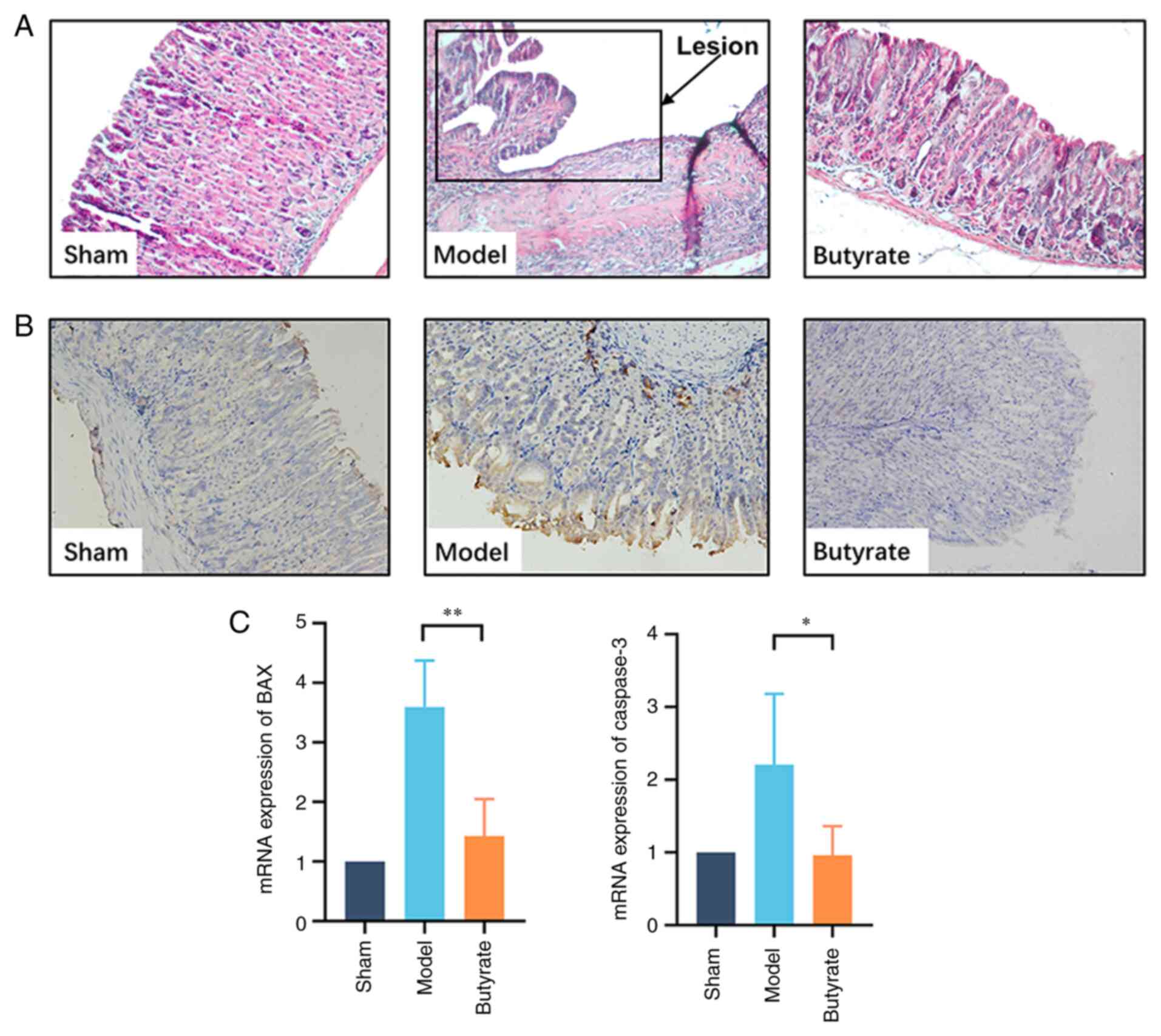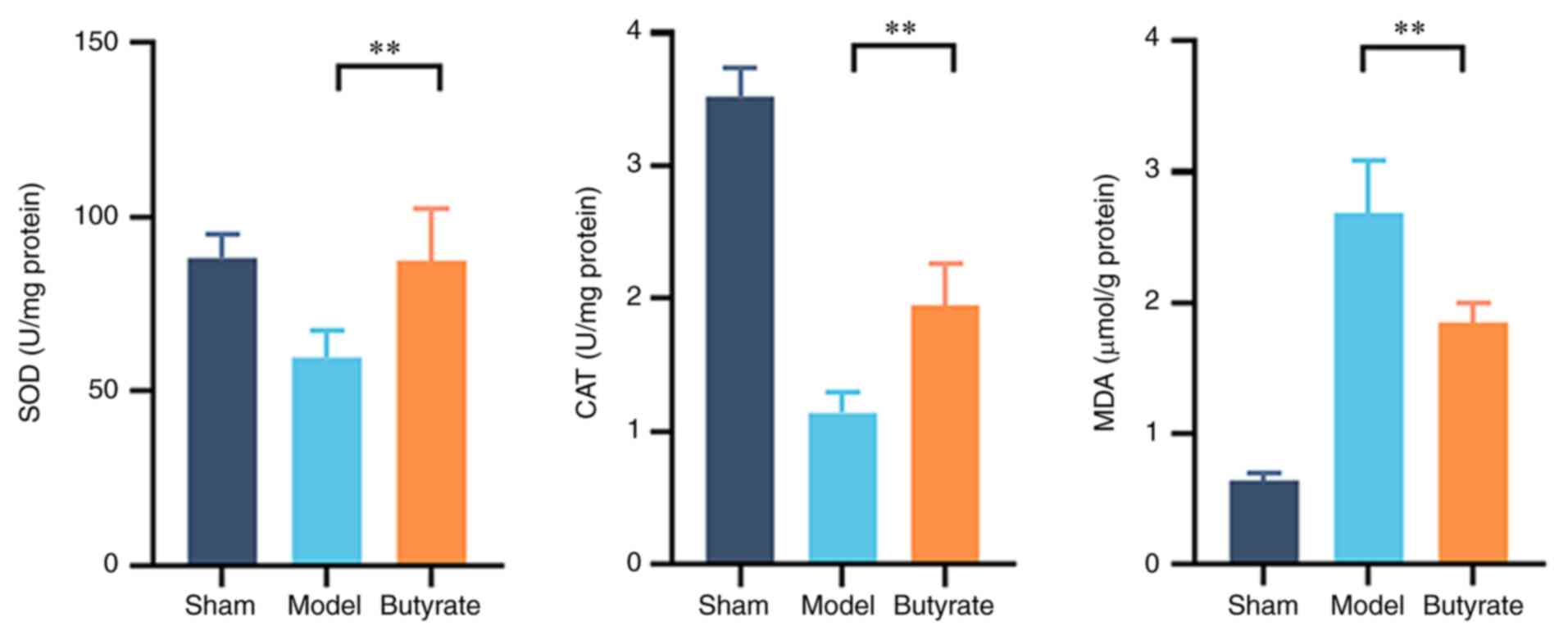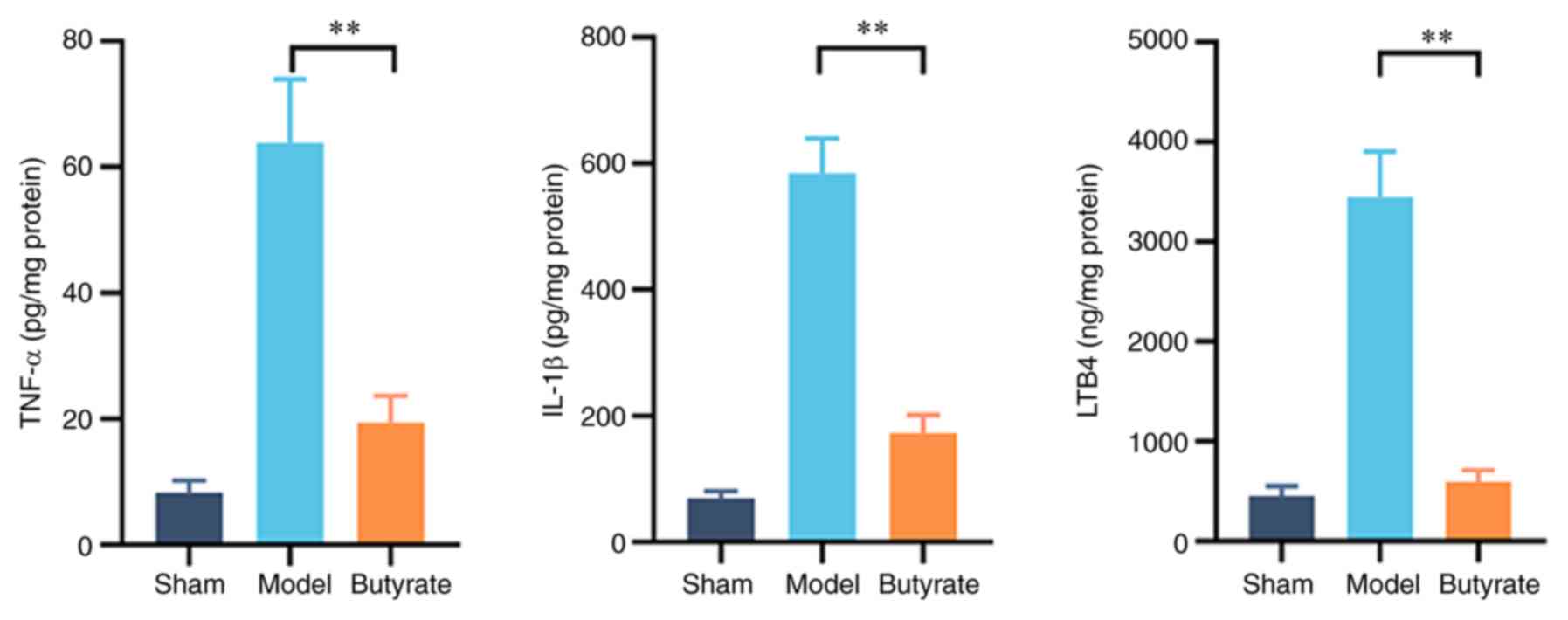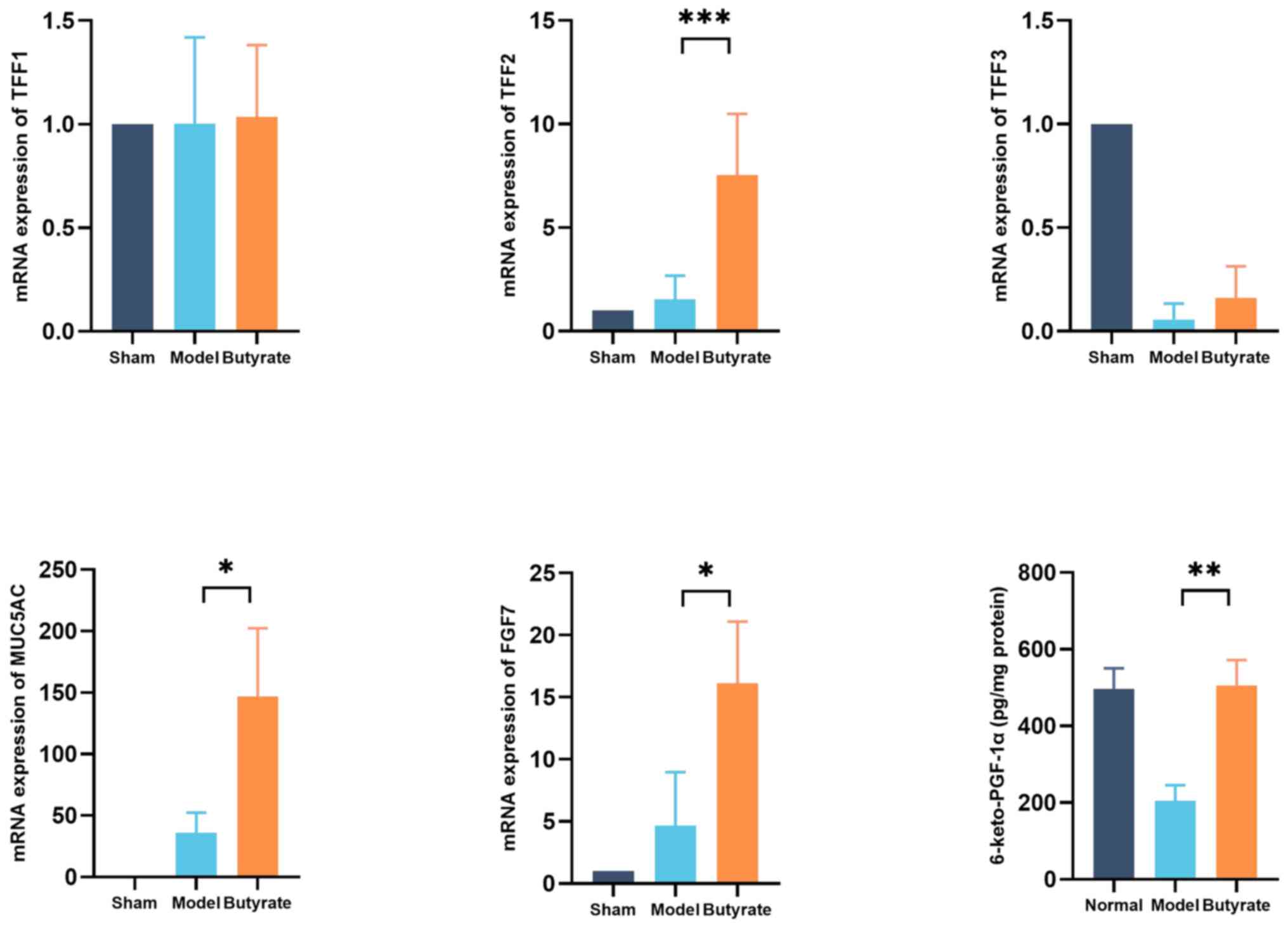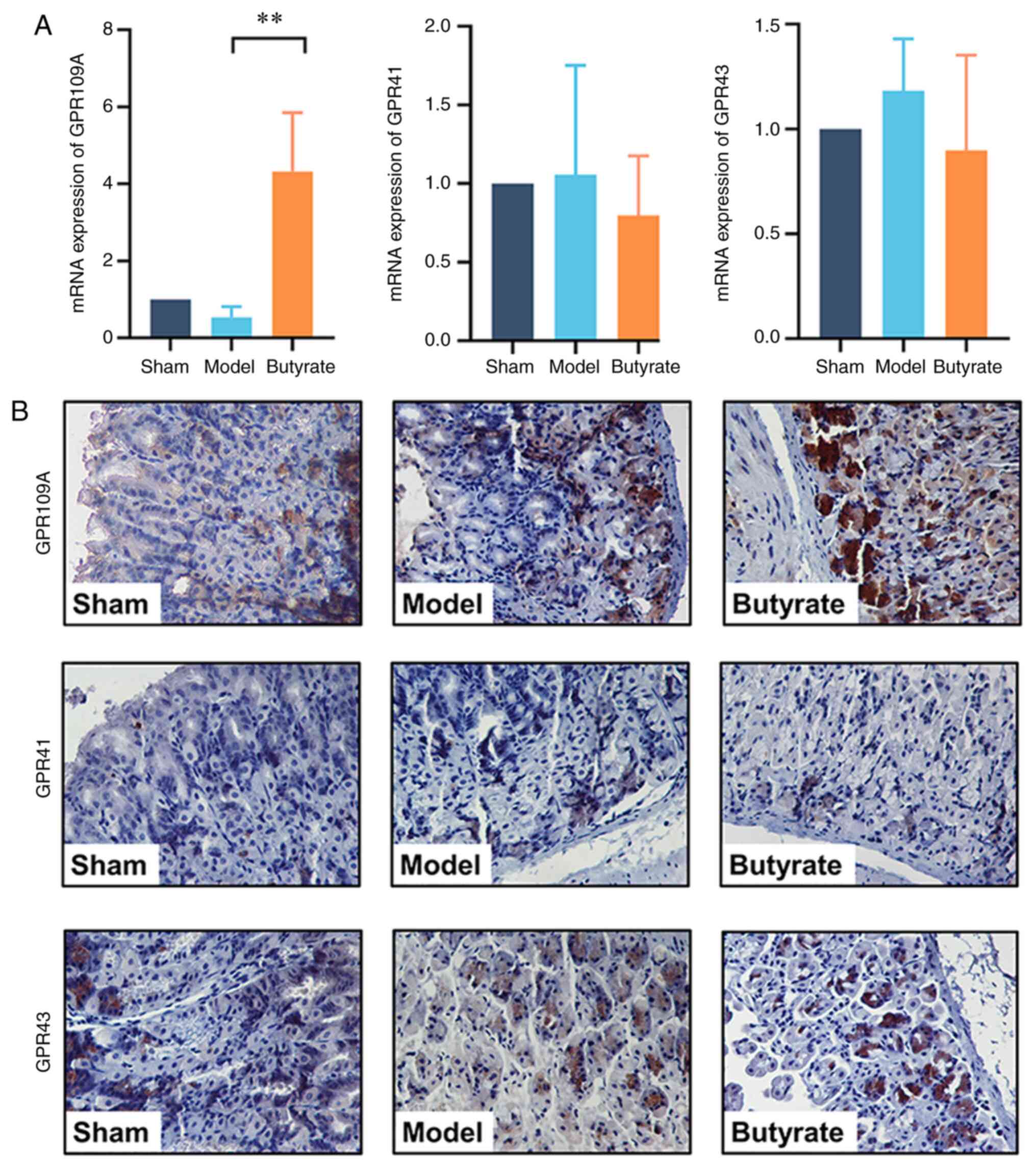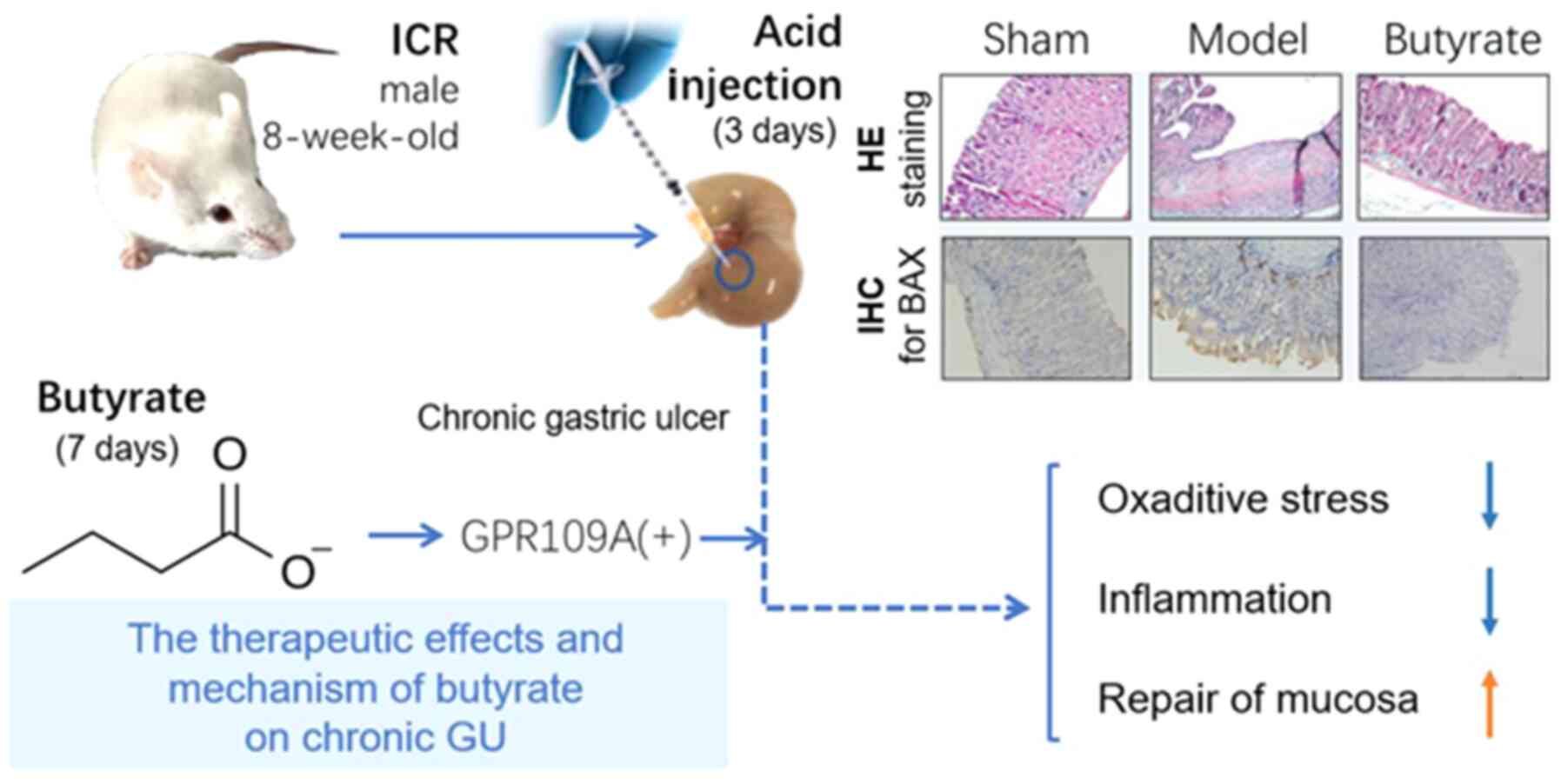|
1
|
Graham DY: History of Helicobacter pylori,
duodenal ulcer, gastric ulcer and gastric cancer. World J
Gastroenterol. 20:5191–5204. 2014.PubMed/NCBI View Article : Google Scholar
|
|
2
|
Waldum HL, Kleveland PM and Sordal OF:
Helicobacter pylori and gastric acid: An intimate and reciprocal
relationship. Therap Adv Gastroenterol. 9:836–844. 2016.PubMed/NCBI View Article : Google Scholar
|
|
3
|
Adeniyi OS, Emikpe BO and Olaleye SB:
Accelerated gastric ulcer healing in thyroxine-treated rats: Roles
of gastric acid, mucus, and inflammatory response. Can J Physiol
Pharmacol. 96:597–602. 2018.PubMed/NCBI View Article : Google Scholar
|
|
4
|
Brzozowski T, Magierowska K, Magierowski
M, Ptak-Belowska A, Pajdo R, Kwiecien S, Olszanecki R and Korbut R:
Recent advances in the gastric mucosal protection against
stress-induced gastric lesions. Importance of renin-angiotensin
vasoactive metabolites, gaseous mediators and appetite peptides.
Curr Pharm Des. 23:3910–3922. 2017.PubMed/NCBI View Article : Google Scholar
|
|
5
|
Yu LY, Sun LN, Zhang XH, Li YQ, Yu L, Yuan
ZQ, Meng L, Zhang HW and Wang YQ: A review of the novel application
and potential adverse effects of proton pump inhibitors. Adv Ther.
34:1070–1086. 2017.PubMed/NCBI View Article : Google Scholar
|
|
6
|
Yang X, Li Y, Sun Y, Zhang M, Guo C, Mirza
IA and Li YQ: Vonoprazan: A novel and potent alternative in the
treatment of acid-related diseases. Dig Dis Sci. 63:302–311.
2018.PubMed/NCBI View Article : Google Scholar
|
|
7
|
Yamamoto O, Okada Y and Okabe S: Effects
of a proton pump inhibitor, omeprazole, on gastric secretion and
gastric and duodenal ulcers or erosions in rats. Dig Dis Sci.
29:394–401. 1984.PubMed/NCBI View Article : Google Scholar
|
|
8
|
Yoon H and Kim N: Diagnosis and management
of high risk group for gastric cancer. Gut Liver. 9:5–17.
2015.PubMed/NCBI View
Article : Google Scholar
|
|
9
|
Ang TL and Fock KM: Clinical epidemiology
of gastric cancer. Singapore Med J. 55:621–628. 2014.PubMed/NCBI View Article : Google Scholar
|
|
10
|
Yan S, Li B, Bai ZZ, Wu JQ, Xie DW, Ma YC,
Ma XX, Zhao JH and Guo XJ: Clinical epidemiology of gastric cancer
in hehuang valley of China: A 10-year epidemiological study of
gastric cancer. World J Gastroenterol. 20:10486–10494.
2014.PubMed/NCBI View Article : Google Scholar
|
|
11
|
Hansson LE, Nyren O, Hsing AW, Bergström
R, Josefsson S, Chow WH, Fraumeni JF Jr and Adami HO: The risk of
stomach cancer in patients with gastric or duodenal ulcer disease.
N Engl J Med. 335:242–249. 1996.PubMed/NCBI View Article : Google Scholar
|
|
12
|
Tedelind S, Westberg F, Kjerrulf M and
Vidal A: Anti-inflammatory properties of the short-chain fatty
acids acetate and propionate: A study with relevance to
inflammatory bowel disease. World J Gastroenterol. 13:2826–2832.
2007.PubMed/NCBI View Article : Google Scholar
|
|
13
|
Ploger S, Stumpff F, Penner GB, Schulzke
JD, Gäbel G, Martens H, Shen Z, Günzel D and Aschenbach JR:
Microbial butyrate and its role for barrier function in the
gastrointestinal tract. Ann N Y Acad Sci. 1258:52–59.
2012.PubMed/NCBI View Article : Google Scholar
|
|
14
|
Kimura I, Ichimura A, Ohue-Kitano R and
Igarashi M: Free fatty acid receptors in health and disease.
Physiol Rev. 100:171–210. 2020.PubMed/NCBI View Article : Google Scholar
|
|
15
|
Singh N, Gurav A, Sivaprakasam S, Brady E,
Padia R, Shi H, Thangaraju M, Prasad PD, Manicassamy S, Munn DH, et
al: Activation of Gpr109a, receptor for niacin and the commensal
metabolite butyrate, suppresses colonic inflammation and
carcinogenesis. Immunity. 40:128–139. 2014.PubMed/NCBI View Article : Google Scholar
|
|
16
|
Chen G, Ran X, Li B, Li Y, He D, Huang B,
Fu S, Liu J and Wang W: Sodium butyrate inhibits inflammation and
maintains epithelium barrier integrity in a TNBS-induced
inflammatory bowel disease mice model. EBioMedicine. 30:317–325.
2018.PubMed/NCBI View Article : Google Scholar
|
|
17
|
Pirozzi C, Francisco V, Guida FD, Gómez R,
Lago F, Pino J, Meli R and Gualillo O: Butyrate modulates
inflammation in chondrocytes via GPR43 receptor. Cell Physiol
Biochem. 51:228–243. 2018.PubMed/NCBI View Article : Google Scholar
|
|
18
|
Nakajima A, Nakatani A, Hasegawa S, Irie
J, Ozawa K, Tsujimoto G, Suganami T, Itoh H and Kimura I: The short
chain fatty acid receptor GPR43 regulates inflammatory signals in
adipose tissue M2-type macrophages. PLoS One.
12(e0179696)2017.PubMed/NCBI View Article : Google Scholar
|
|
19
|
Lin HV, Frassetto A, Kowalik EJ Jr,
Nawrocki AR, Lu MM, Kosinski JR, Hubert JA, Szeto D, Yao X, Forrest
G and Marsh DJ: Butyrate and propionate protect against
diet-induced obesity and regulate gut hormones via free fatty acid
receptor 3-independent mechanisms. PLoS One.
7(e35240)2012.PubMed/NCBI View Article : Google Scholar
|
|
20
|
Kim MH, Kang SG, Park JH, Yanagisawa M and
Kim CH: Short-chain fatty acids activate GPR41 and GPR43 on
intestinal epithelial cells to promote inflammatory responses in
mice. Gastroenterology. 145:396–406, e391-310. 2013.PubMed/NCBI View Article : Google Scholar
|
|
21
|
Liu J, Wang F, Luo H, Liu A, Li K, Li C
and Jiang Y: Protective effect of butyrate against ethanol-induced
gastric ulcers in mice by promoting the anti-inflammatory,
anti-oxidant and mucosal defense mechanisms. Int Immunopharmacol.
30:179–187. 2016.PubMed/NCBI View Article : Google Scholar
|
|
22
|
Mizuno H, Sakamoto C, Matsuda K, Wada K,
Uchida T, Noguchi H, Akamatsu T and Kasuga M: Induction of
cyclooxygenase 2 in gastric mucosal lesions and its inhibition by
the specific antagonist delays healing in mice. Gastroenterology.
112:387–397. 1997.PubMed/NCBI View Article : Google Scholar
|
|
23
|
Toma W, Hiruma-Lima CA, Guerrero RO and
Brito AR: Preliminary studies of mammea americana L. (Guttiferae)
bark/latex extract point to an effective antiulcer effect on
gastric ulcer models in mice. Phytomedicine. 12:345–350.
2005.PubMed/NCBI View Article : Google Scholar
|
|
24
|
Livak KJ and Schmittgen TD: Analysis of
relative gene expression data using real-time quantitative PCR and
the 2(-Delta Delta C(T)) method. Methods. 25:402–408.
2001.PubMed/NCBI View Article : Google Scholar
|
|
25
|
Liu J, Wang J, Shi Y, Su W, Chen J, Zhang
Z, Wang G and Wang F: Short chain fatty acid acetate protects
against ethanol-induced acute gastric mucosal lesion in mice. Biol
Pharm Bull. 40:1439–1446. 2017.PubMed/NCBI View Article : Google Scholar
|
|
26
|
Kangwan N, Park JM, Kim EH and Hahm KB:
Quality of healing of gastric ulcers: Natural products beyond acid
suppression. World J Gastrointest Pathophysiol. 5:40–47.
2014.PubMed/NCBI View Article : Google Scholar
|
|
27
|
Tarnawski A, Douglass TG, Stachura J and
Krause WJ: Quality of gastric ulcer healing: Histological and
ultrastructural assessment. Aliment Pharmacol Ther. 1 (5
Suppl):S79–S90. 1991.PubMed/NCBI View Article : Google Scholar
|
|
28
|
Guilloteau P, Martin L, Eeckhaut V,
Ducatelle R, Zabielski R and Van Immerseel F: From the gut to the
peripheral tissues: The multiple effects of butyrate. Nutr Res Rev.
23:366–384. 2010.PubMed/NCBI View Article : Google Scholar
|
|
29
|
Bloemen JG, Venema K, van de Poll MC, Olde
Damink SW, Buurman WA and Dejong CH: Short chain fatty acids
exchange across the gut and liver in humans measured at surgery.
Clin Nutr. 28:657–661. 2009.PubMed/NCBI View Article : Google Scholar
|
|
30
|
Gaudier E, Jarry A, Blottiere HM, de
Coppet P, Buisine MP, Aubert JP, Laboisse C, Cherbut C and Hoebler
C: Butyrate specifically modulates MUC gene expression in
intestinal epithelial goblet cells deprived of glucose. Am J
Physiol Gastrointest Liver Physiol. 287:G1168–G1174.
2004.PubMed/NCBI View Article : Google Scholar
|
|
31
|
Liang JB, Wang P, Feng YH, Huang YL, Wang
FJ and Ren H: Effects of sodium butyrate on intestinal barrier of
severe scald mice and the related mechanism. Zhonghua shao shang za
zhi. 36:48–53. 2020.PubMed/NCBI View Article : Google Scholar : (In Chinese).
|
|
32
|
Barcenilla A, Pryde SE, Martin JC, Duncan
SH, Stewart CS, Henderson C and Flint HJ: Phylogenetic
relationships of butyrate-producing bacteria from the human gut.
Appl Environ Microbiol. 66:1654–1661. 2000.PubMed/NCBI View Article : Google Scholar
|
|
33
|
Egorin MJ, Yuan ZM, Sentz DL, Plaisance K
and Eiseman JL: Plasma pharmacokinetics of butyrate after
intravenous administration of sodium butyrate or oral
administration of tributyrin or sodium butyrate to mice and rats.
Cancer Chemother Pharmacol. 43:445–453. 1999.PubMed/NCBI View Article : Google Scholar
|
|
34
|
Liang X, Wang RS, Wang F, Liu S, Guo F,
Sun L, Wang YJ, Sun YX and Chen XL: Sodium butyrate protects
against severe burn-induced remote acute lung injury in rats. PLoS
One. 8(e68786)2013.PubMed/NCBI View Article : Google Scholar
|
|
35
|
Wong JM, de Souza R, Kendall CW, Emam A
and Jenkins DJ: Colonic health: Fermentation and short chain fatty
acids. J Clin Gastroenterol. 40:235–243. 2006.PubMed/NCBI View Article : Google Scholar
|
|
36
|
Hijova E and Chmelarova A: Short chain
fatty acids and colonic health. Bratisl Lek Listy. 108:354–358.
2007.PubMed/NCBI
|
|
37
|
Wang FY, Liu JM, Luo HH, Liu AH and Jiang
Y: Potential protective effects of clostridium butyricum on
experimental gastric ulcers in mice. World J Gastroenterol.
21:8340–8351. 2015.PubMed/NCBI View Article : Google Scholar
|
|
38
|
Lin Y, Fang ZF, Che LQ, Xu SY, Wu D, Wu CM
and Wu XQ: Use of sodium butyrate as an alternative to dietary
fiber: Effects on the embryonic development and anti-oxidative
capacity of rats. PLoS One. 9(e97838)2014.PubMed/NCBI View Article : Google Scholar
|
|
39
|
Xing X, Jiang Z, Tang X, Wang P, Li Y, Sun
Y, Le G and Zou S: Sodium butyrate protects against oxidative
stress in HepG2 cells through modulating Nrf2 pathway and
mitochondrial function. J Physiol Biochem. 73:405–414.
2016.PubMed/NCBI View Article : Google Scholar
|
|
40
|
Inan MS, Rasoulpour RJ, Yin L, Hubbard AK,
Rosenberg DW and Giardina C: The luminal short-chain fatty acid
butyrate modulates NF-kappaB activity in a human colonic epithelial
cell line. Gastroenterology. 118:724–734. 2000.PubMed/NCBI View Article : Google Scholar
|
|
41
|
Yin L, Laevsky G and Giardina C: Butyrate
suppression of colonocyte NF-kappa B activation and cellular
proteasome activity. J Biol Chem. 276:44641–44646. 2001.PubMed/NCBI View Article : Google Scholar
|
|
42
|
Luhrs H, Gerke T, Muller JG, Melcher R,
Schauber J, Boxberge F, Scheppach W and Menzel T: Butyrate inhibits
NF-kappaB activation in lamina propria macrophages of patients with
ulcerative colitis. Scand J Gastroenterol. 37:458–466.
2002.PubMed/NCBI View Article : Google Scholar
|
|
43
|
Aziz RS, Siddiqua A, Shahzad M, Shabbir A
and Naseem N: Oxyresveratrol ameliorates ethanol-induced gastric
ulcer via downregulation of IL-6, TNF-α, NF-kB, and COX-2 levels,
and upregulation of TFF-2 levels. Biomed Pharmacother. 110:554–560.
2019.PubMed/NCBI View Article : Google Scholar
|
|
44
|
He H, Feng M, Xu H, Li X, He Y, Qin H,
Zhang Y, Tang H and Zou K: Total triterpenoids from the fruits of
chaenomeles speciosa exerted gastroprotective activities on
indomethacin-induced gastric damage via modulating
microRNA-423-5p-mediated TFF/NAG-1 and apoptotic pathways. Food
Funct. 11:662–679. 2020.PubMed/NCBI View Article : Google Scholar
|
|
45
|
Longman RJ, Douthwaite J, Sylvester PA,
Poulsom R, Corfield AP, Thomas MG and Wright NA: Coordinated
localisation of mucins and trefoil peptides in the ulcer associated
cell lineage and the gastrointestinal mucosa. Gut. 47:792–800.
2000.PubMed/NCBI View Article : Google Scholar
|
|
46
|
Katoh M: Trefoil factors and human gastric
cancer (review). Int J Mol Med. 12:3–9. 2003.PubMed/NCBI
|
|
47
|
Chen J, Zhao KN and Vitetta L: Effects of
intestinal microbial(-)elaborated butyrate on oncogenic signaling
pathways. Nutrients. 11(1026)2019.PubMed/NCBI View Article : Google Scholar
|
|
48
|
Bultman SJ: Interplay between diet, gut
microbiota, epigenetic events, and colorectal cancer. Mol Nutr Food
Res. 61(10)2017.PubMed/NCBI View Article : Google Scholar
|
|
49
|
Davie JR: Inhibition of histone
deacetylase activity by butyrate. J Nutr. 133 (7
Suppl):2485S–2493S. 2003.PubMed/NCBI View Article : Google Scholar
|
|
50
|
Eslami M, Sadrifar S, Karbalaei M, Keikha
M, Kobyliak NM and Yousefi B: Importance of the microbiota
inhibitory mechanism on the warburg effect in colorectal cancer
cells. J Gastrointest Cancer. 51:738–747. 2020.PubMed/NCBI View Article : Google Scholar
|
|
51
|
Hanson J, Gille A, Zwykiel S, Lukasova M,
Clausen BE, Ahmed K, Tunaru S, Wirth A and Offermanns S: Nicotinic
acid- and monomethyl fumarate-induced flushing involves GPR109A
expressed by keratinocytes and COX-2-dependent prostanoid formation
in mice. J Clin Invest. 120:2910–2919. 2010.PubMed/NCBI View Article : Google Scholar
|
|
52
|
Benyo Z, Gille A, Kero J, Csiky M,
Suchánková MC, Nüsing RM, Moers A, Pfeffer K and Offermanns S:
GPR109A (PUMA-G/HM74A) mediates nicotinic acid-induced flushing. J
Clin Invest. 115:3634–3640. 2005.PubMed/NCBI View Article : Google Scholar
|
|
53
|
Tarnawski AS: Cellular and molecular
mechanisms of gastrointestinal ulcer healing. Dig Dis Sci. 50
(Suppl 1):S24–S33. 2005.PubMed/NCBI View Article : Google Scholar
|















